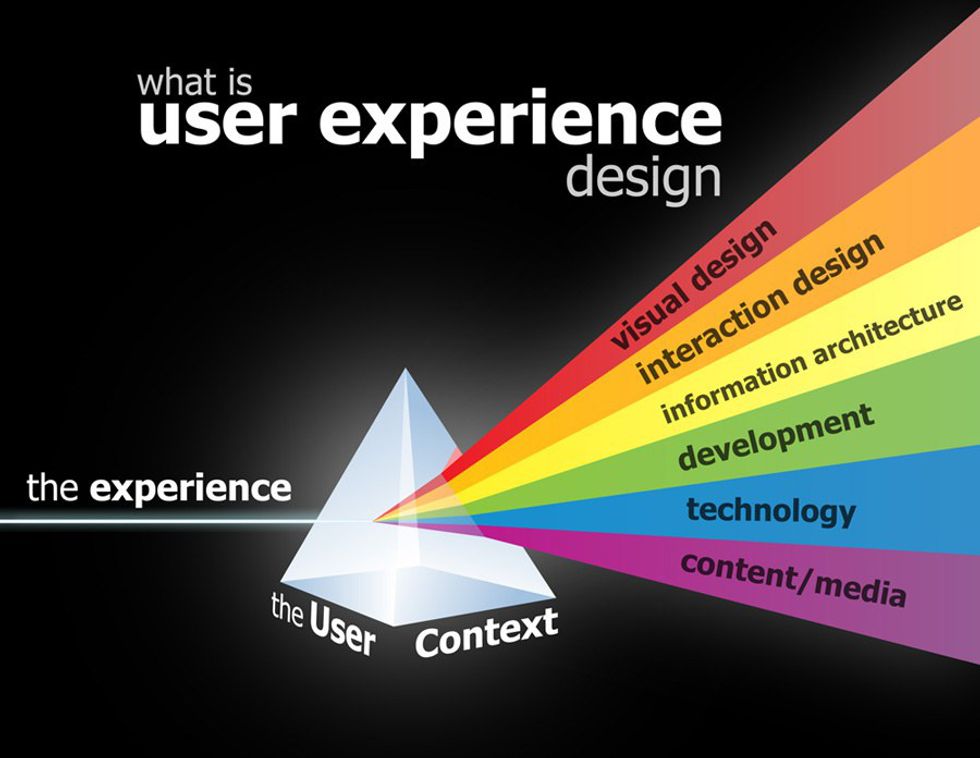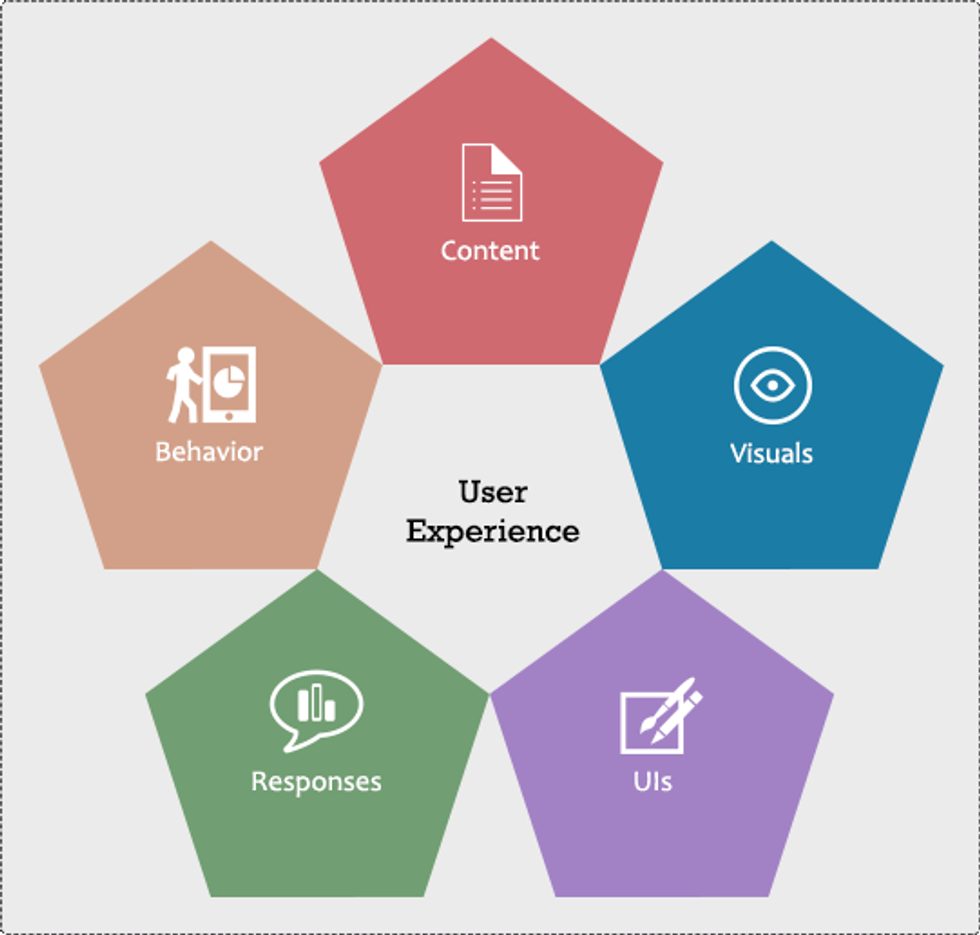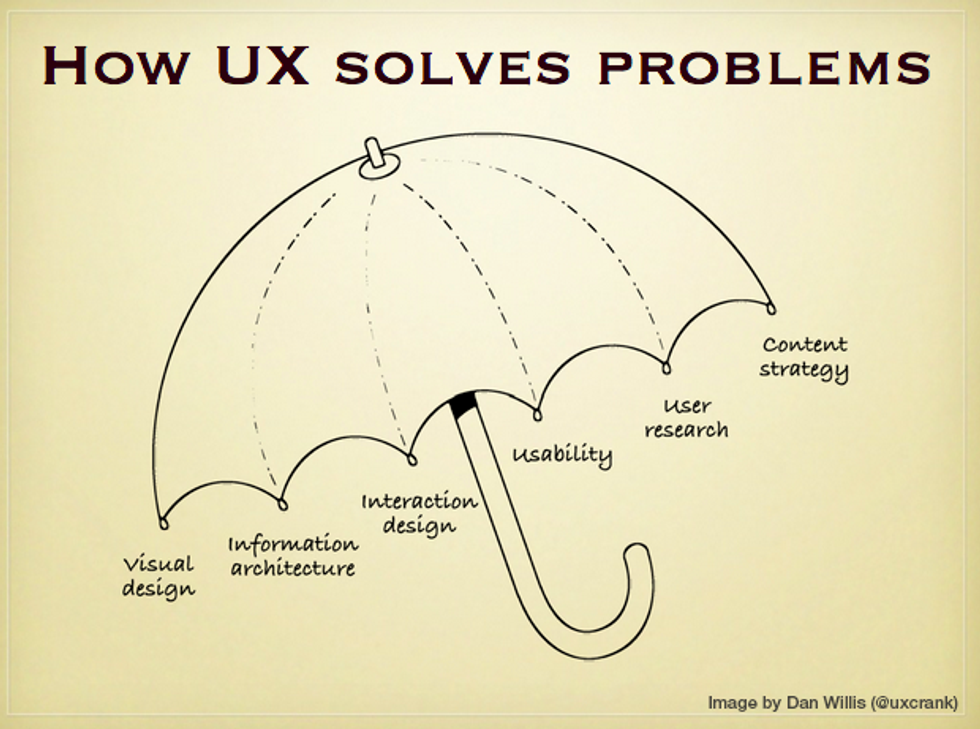The term, User Experience, or UX has been tossed around universities, tech-supports and professionals beginning as recently as 2014. It's a growing, new field in need of trained experts. It's a new term, and truly captures all ideas within a company's idea of just that-- their user's experience. User experience is the term used for the end-user's first interaction with a company's final project, software, service, product, etc. Bare in mind, this is different than usability, which focuses on the quality of final products, whereas user experience is much broader by applying all aspects of interaction rather than just the qualitative measures.
With this new idea of a user's experience being measured on a large scale, the question arises-- why does this matter? Some argue that a UX designer isn't as integral to design as the product designer or website designer. Most high school students aren't even aware that this is a possible career for them-- I wasn't. What consumers and industry fail to recognize is that there is a lack for user experience design, good UX design, all around us in industry, business, and educational systems. It doesn't matter the design, the product, the end result will never transfer over positively to the intended audience/user if the user does not know how to interact with it. User experience takes the physical product or fully functional website and ensures the positive, efficient, and functionally smart interaction with it. The more happy and pleased users are with a product, a service or a website, the more apt they are the connect positive emotions with that company or product, and continue to use and interact with it.
From my personal experience, my college started with a traditional technical communications degree and recently merged and redesigned to become a user experience design and communications degree. Some ask, "How is that related? Are they similar? What are the benefits of this change?" The change makes quite a bit of sense actually.
Technical communications is a degree focused on understanding everything involved with a product or service. We are often referred to as the "bridge between the engineer and the consumer", because TC's work with the design teams, document all aspects of the design, create assistance references for users, and ensure the structure of a product, service, or website's interface. With this knowledge, TC's are unbelievably helpful to a user experience designer. They work together to solve issues that arise, and issues the developers cannot see that users will ultimately experience and refute if ignored. Knowing both the background knowledge of technical communications and its expectations and combining it with the technical expertise of a UX designer makes for an unstoppable user-friendly ally to the consumer of any product or interface.
User experience is a new, exciting, and innovative way to look at business' success through the user's standpoint. Without UX designers, we will continue to have websites that frustrate and confuse users. Without technical communicators, we wouldn't have a clear and easy path to understanding something new or intimidating. I hope this article inspires more students to become interested in these degrees, and dispels the misinterpretation over these individually rewarding careers.
Sources:
https://designshack.net/articles/why-does-user-exp...

























